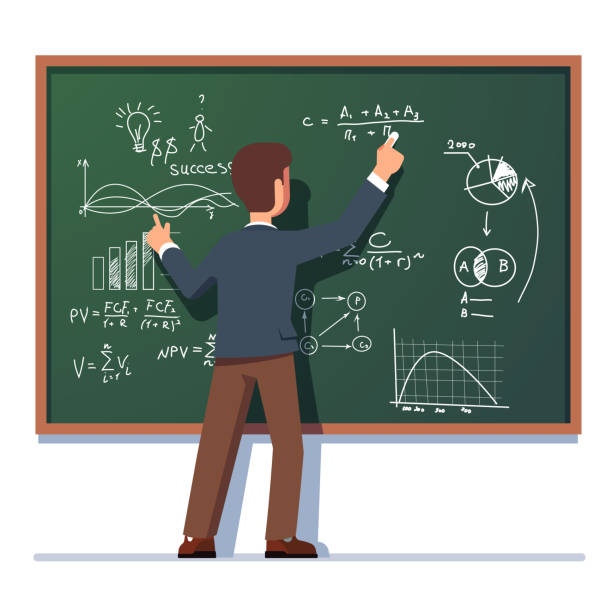Why experienced math teachers are indispensable for improving math education today
Wiki Article
Navigating Industry Standards in Mathematics: A Complete Overview to Ideal Practices and Leadership for Professors Excellence
Guiding sector standards in math needs a nuanced understanding of evolving methods. Educators has to straighten their educational program with these requirements while employing cutting-edge teaching techniques. Continual specialist advancement stays vital for fostering faculty excellence. By discovering the crossway of curriculum layout and student engagement, one can discover techniques that enhance academic outcomes. The effects of these strategies prolong past the classroom, motivating further factor to consider of their more comprehensive effect on maths education.Recognizing Present Sector Standards in Mathematics
As markets progressively depend on data-driven decision-making, comprehending present market requirements in math has become necessary. Mathematics works as the foundation for information evaluation, modeling, and analytical inference across different fields. The proliferation of huge information requires a durable understanding of mathematical concepts, including calculus, direct algebra, and likelihood theory. Furthermore, familiarity with mathematical software devices is important, as they assist in complicated computations and data visualization.Sector requirements frequently stress the importance of mathematical rigor and real-world application, motivating experts to take on analytic approaches rooted in quantitative thinking. Moreover, interdisciplinary expertise, specifically in fields such as business economics, design, and innovation, improves the ability to resolve intricate challenges. Organizations are progressively seeking individuals who not only possess mathematical abilities but also understand their applications in service contexts. Subsequently, lining up educational structures with these progressing requirements is crucial to prepare students for the demands of a data-centric labor force.
Ideal Practices for Curriculum Development
Efficient educational program advancement in math calls for a critical technique that incorporates sector requirements and best techniques. Professors should involve in a thorough demands assessment to recognize the abilities and understanding called for by trainees in today's workforce. Lining up curriculum with recognized criteria, such as the Usual Core or particular accreditation demands, assurances importance and rigor.Collaboration amongst professors participants is crucial for sharing insights and fostering a natural curriculum. Integrating comments from industry stakeholders can provide important perspectives on emerging trends and needed competencies.
Furthermore, incorporating innovation and varied sources in the educational program can improve finding out experiences, making them much more suitable to real-world scenarios. Routine evaluation and revision of the curriculum based on trainee performance and developing sector demands will help maintain its relevance. Ultimately, a well-structured curriculum that sticks to these ideal methods prepares students for success in both academic and professional settings.
Involving Pupils Via Cutting-edge Training Techniques
Ingenious teaching approaches play a crucial duty in boosting pupil interaction in mathematics. By integrating innovation, such as interactive software application and online platforms, educators can create immersive learning experiences. These devices enable trainees to imagine complex ideas, changing abstract concepts into tangible understanding. Collective understanding approaches, such as group tasks and peer teaching, cultivate a feeling of area, encouraging pupils to share varied perspectives and analytic approaches.Additionally, real-world applications of mathematical principles can make lessons more pertinent and stimulating. Integrating data with current events or making use of mathematical modeling to address social concerns can mesmerize pupils' interest. Gamification strategies, where elements of video game layout are related to discovering, also inspire pupils to take part proactively and appreciate the process of exploration. Inevitably, these ingenious teaching approaches not just involve students yet also cultivate a much deeper admiration for mathematics, leading the way for future scholastic and professional quests.
Cultivating a Culture of Continuous Renovation
While promoting a society of continual improvement in mathematics education and learning, educators need to focus on ongoing professional advancement and collective techniques. This dedication assures that faculty members are furnished with the newest pedagogical approaches and content knowledge (experienced math teachers). Normal workshops, peer monitorings, and feedback sessions facilitate a setting where teachers can share ideal methods and gain from one an additionalApplying reflective practices is vital. Professors needs to regularly evaluate their teaching techniques and student results, making use of data to inform advancements and changes. Urging open dialogue concerning difficulties and successes likewise promotes a growth frame of mind among instructors.
In addition, the unification of pupil comments into course assessments can provide useful insights into the performance of teaching techniques. By actively taking part in these processes, educators enhance a common duty for enhancement, inevitably enhancing the instructional experience for trainees and fostering a thriving scholastic area devoted to excellence in mathematics education and learning.
Management Approaches for Faculty Excellence
Visit This LinkGrowing faculty excellence calls for a tactical technique to leadership that stresses clear interaction, shared vision, and shared assistance. Reliable leaders in academia promote an environment where faculty can grow by advertising collaboration and encouraging ingenious teaching techniques. They implement routine comments devices, permitting continual analysis and renovation of both teaching techniques and trainee interaction.
Leaders ought to prioritize specialist advancement possibilities, guaranteeing professors members are equipped with the most up to date pedagogical tools and industry techniques. Establishing mentorship programs can better enhance the development of much less skilled professors, creating an encouraging network that bolsters confidence and proficiency.
In addition, identifying and rewarding achievements cultivates motivation and dedication amongst professors. By straightening department goals with institutional objectives, leaders can combine efforts towards shared purposes. Inevitably, these management approaches not only enhance the quality of guideline yet likewise contribute to a dynamic academia that focuses on quality in mathematics education.
Regularly Asked Inquiries
Just How Can I Stay Updated on Evolving Mathematics Standards?
To stay updated on advancing math requirements, one must regularly consult expert organizations, participate in workshops, sign up for appropriate journals, and join on-line discussion forums, fostering links with peers and professionals in the field for continuous understandings.What Are Typical Mistakes in Curriculum Growth to Avoid?
Usual risks in educational program development consist of insufficient stakeholder engagement, overlooking diverse learning demands, lack of alignment with standards, failing to integrate analyses efficiently, and poor resources for application, which can hinder general instructional efficiency and pupil success.Exactly how Do I Gauge Pupil Engagement Efficiently?

What Resources Are Offered for Professors Specialist Growth?
Numerous sources for professors specialist growth include workshops, online courses, peer mentorship programs, academic conferences, and institutional gives. These avenues offer chances for skill cooperation, improvement, and networking, promoting constant growth within the educational area.Just How Can Professors Work Together on Best Practices in Mathematics Education And Learning?

By discovering the crossway of curriculum style and student involvement, one can uncover approaches that enhance instructional outcomes. Professors has to involve in a thorough requirements assessment to identify the abilities and expertise required by students in today's labor force. Regular assessment and alteration of the educational program based on trainee performance and progressing industry demands will certainly help maintain its significance. Cutting-edge teaching methods play a critical function in boosting pupil engagement in mathematics. Professors ought to regularly evaluate their teaching techniques and pupil end results, using data to notify developments and modifications.
Report this wiki page